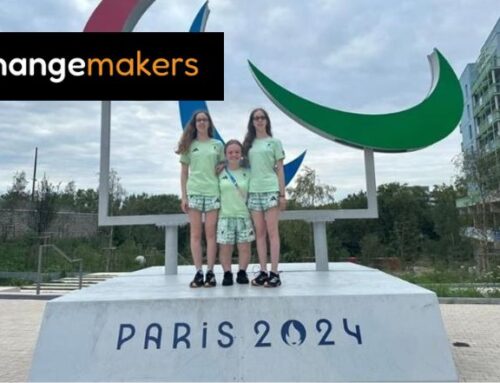For British Science Week, Charlotte Bateman spoke to a blind 16-year-old student (AJ) at the Royal National College for the Blind (RNC), Herefordshire – about making STEM subjects more accessible to VI pupils.
While she is currently studying A-Levels in English Literature, Psychology and German, AJ excelled at science during her GCSE education. Below she shares her tips for getting the most out of your lessons, and what to do if you are struggling with the syllabus.
What was your experience of science at school?
AJ: My experience was pretty mixed. A lot of the issues lay with the actual curriculum rather than with the teaching. I did have one teacher change, but all my teachers for science did their best. The problem was, many of the required practicals were very visual and the syllabus expects you to do things like draw diagrams which is challenging when you have limited sight like myself.
How did you access diagrams?
AJ: My visual impairment team would raise the diagrams for me and if I had a learning support session before a science lesson, we would look at the diagrams ahead of time. This meant I was already a bit familiar with them and that I wasn’t, quite literally, going in blind! We also used Bumpons and pins on cork boards to plot diagrams.
When it came to practicals, did you feel included and able to take part?
AJ: At my school, we generally did practicals in groups. Sometimes the groups were quite good at including me but often I did feel left out and would just be note-taking. Physics experiments were particularly difficult. This is because a lot of them require looking at measurements or waves which is not very accessible. However, one useful thing my teachers did was when they would demonstrate a practical, they would let me feel some of the equipment which gave me a sense of what the apparatus looked like.
What would be your advice to anyone who is struggling with their Science GCSEs?
AJ: One of the most important things is self-advocating. Unfortunately, because there is so much to cover, you might do just one lesson on a topic and that topic could come up in the exam. So, if you don’t understand something, going to your teacher and asking for it to be explained again is really helpful. It’s also important to let teachers know what works and what doesn’t work for you. One thing I found helpful was asking my teacher not to put me in oversized groups. When this would happen, I would often feel left to the side, and you really need to be taking part to understand what’s going on. Outside of school, I would recommend looking up Science videos to recap topics. The channel that immediately jumps to my mind is Free Science Lessons. Each video is 2-4 minutes long and most of them are just the presenter talking so there’s nothing visual.
In terms of the exam, what were your arrangements?
AJ: I had extra time; I had a reader/scribe; and I had supervised rest breaks. I also had Braille and tactile materials. Compared to the other subjects, I found the Science papers were very involved. You’ve got diagrams and tables to fill out and sometimes you may be asked to write on graphs, so having a reader/scribe there to do that for you is super useful. As for the periodic table, mine was in Braille and it was massive! I therefore found it much quicker and more efficient to ask my reader/scribe to take my hand to an element instead of me having to scan to find it.
Thank you to AJ for sharing her experience with the VICTA Student Portal. If you are studying and would like to share your tips of experiences we’d love to hear about them in the comments.
Interview written by Charlotte Bateman.





